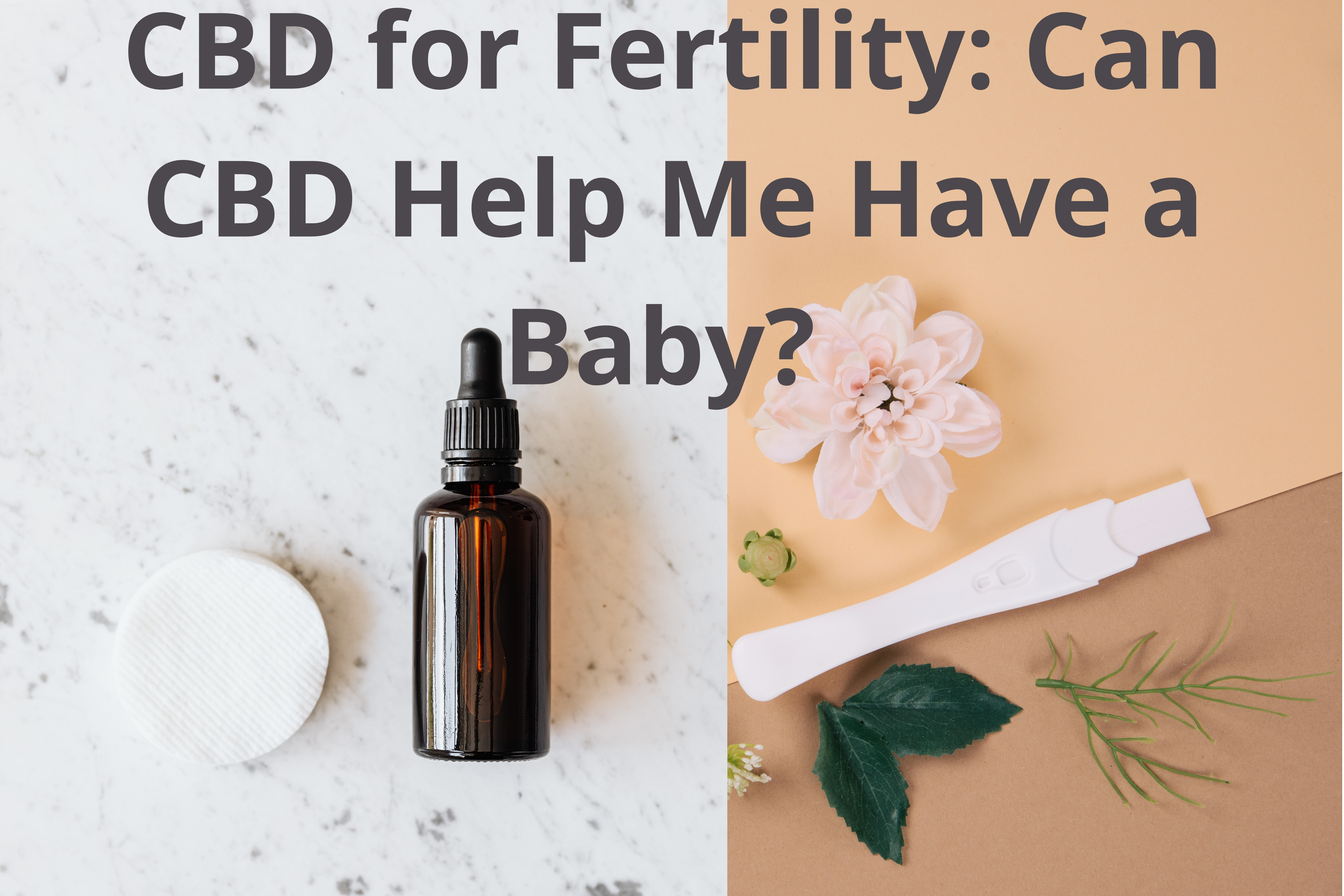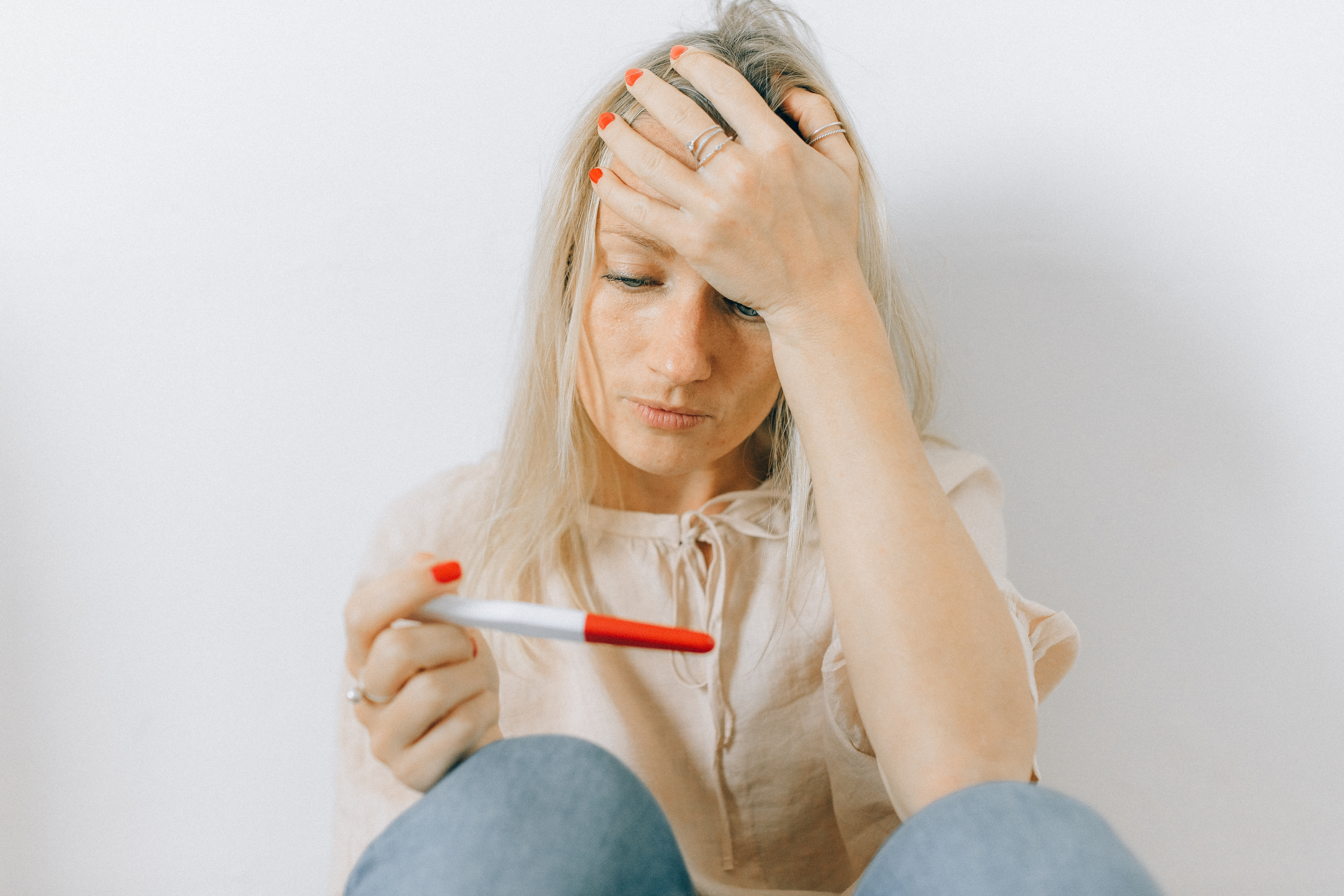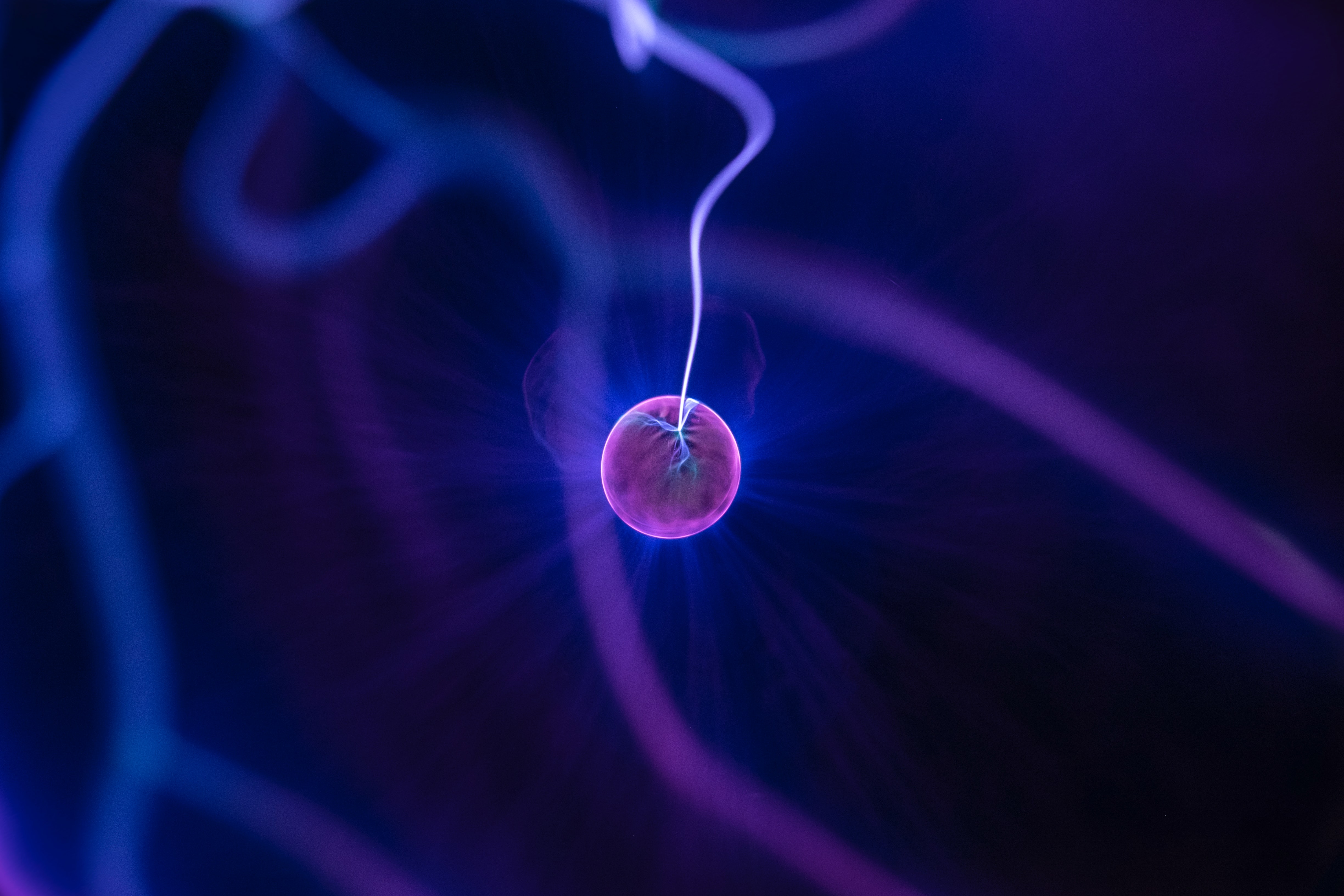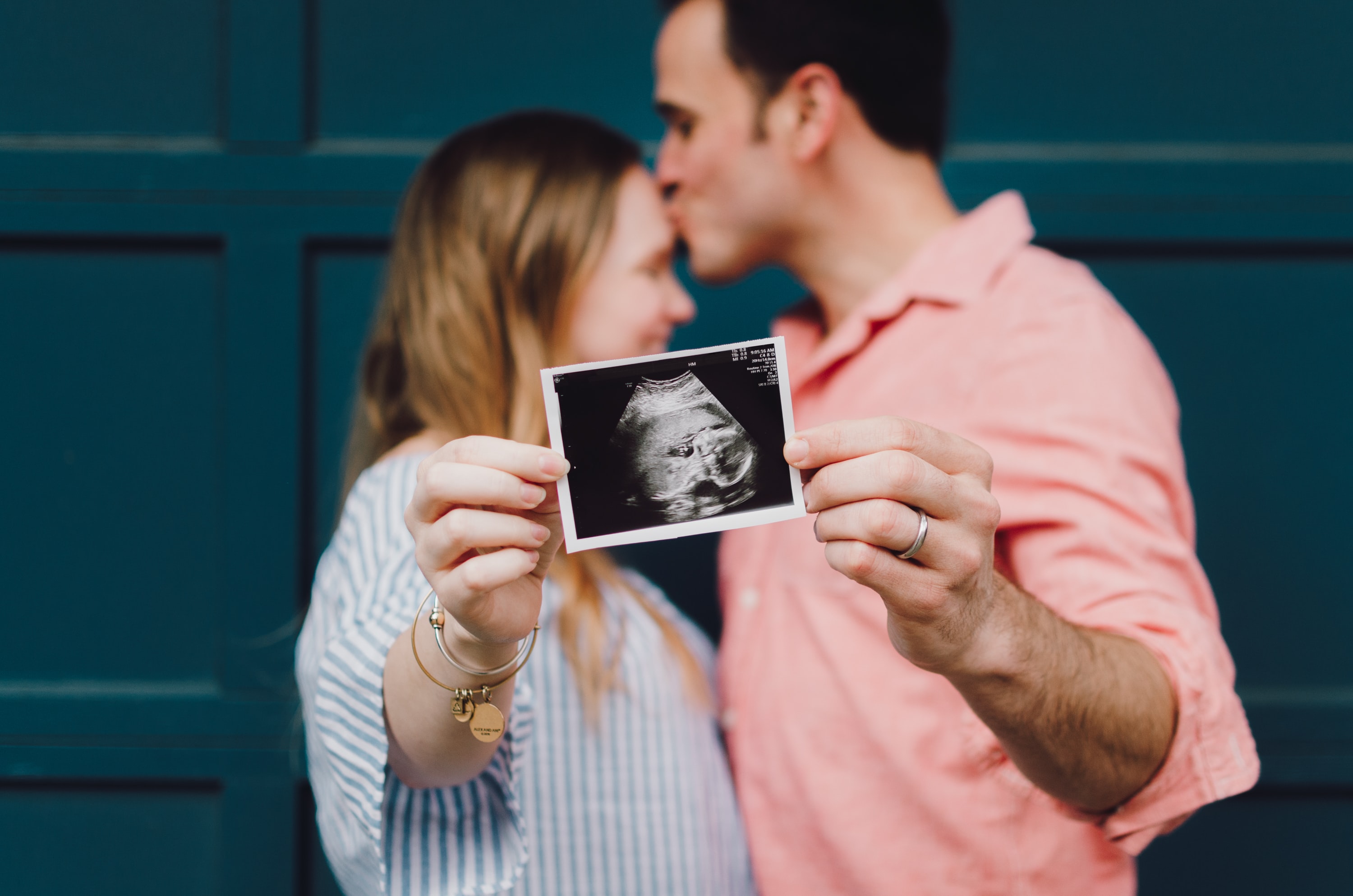
It’s been three minutes now. And you’ve done everything you can to distract yourself from looking too early.
But the time has come… You hold your breath, close your eyes, and quickly pick up your at-home pregnancy test.
As you slowly open your eyes, you find yourself letting out a disappointing sigh. It’s negative… again.
The desire to have a baby usually arises in women after puberty. And believe it or not, men have desires to have children as well.
But what happens when you’ve tried and tried and you just can’t conceive?
Now you might be thinking, by the title of this article, that somehow CBD oil is the answer to helping you become fertile so you can fulfill the desire to have a baby.
Well, you wouldn’t be entirely wrong…
Yes, CBD may be able to help, but not in the way you may think. And to be quite honest, there are a few things couples should know before consuming CBD if they’re looking to conceive a child.
Let’s look at it a little deeper…
Infertility in men and women

Sadly, about 9% of men and 11% of women suffer from fertility problems in the United States.
So what does this mean?
According to studies, “after 1 year of having unprotected sex, 12% to 15% of couples are unable to conceive, and after 2 years, 10% of couples still have not had a live-born baby. (In couples younger than age 30 who are generally healthy, 40% to 60% are able to conceive in the first 3 months of trying.)
Fertility declines with age in both men and women, but the effects of age are much greater in women. In their 30s, women are about half as fertile as they are in their early 20s, and a woman's chance of conception declines significantly after age 35. Male fertility also declines with age, but more gradually.”
The way in which a doctor will determine whether a man or woman is infertile, is through a series of tests and exams.
And according to WebMD, “In about 80% of couples, the cause of infertility is either an ovulation problem, blockage of the fallopian tubes, or a sperm problem. In 5%-15% of couples, all tests are normal, and the cause is not known.”
Which brings us to…
Hormonal imbalances and pregnancy

Hormonal imbalances are usually the first to blame when a couple is unable to conceive a baby. But you’d be surprised to learn that there are other factors at play when trying to get pregnant.
But first, here are the key fertility hormones that help increase a successful pregnancy:
-
Progesterone –– This is perhaps one of the main key players in preparing the female body to become pregnant. But it also helps in carrying out your pregnancy until you give birth. Miscarriages are often the result of low levels of progesterone.
-
FSH or Follicle Stimulating Hormone –– This hormone is also considered one of the main factors in conceiving a child. In fact, it’s responsible for producing healthy eggs and ensuring your cycle is regular.
-
Prolactin –– This hormone is most popularly known for milk production when a new mother is breastfeeding, but it also helps in maintaining a regular cycle. And we all know a healthy cycle is essential to conceiving a child.
-
LH or Luteinizing Hormone –– This hormone is what women look for when they’re using an at-home ovulation predictor kit. It’s the very hormone that communicates to the body to release an egg when it’s ready to be fertilized.
-
T3 and T4 –– These are known as thyroid hormones and they play a very important role in getting pregnant. Dr. Elena Villanueva, of Modern Holistic Health, stated, "The thyroid gland, female reproductive organs, and adrenal glands are intricately connected. If there is an issue with either the thyroid or the adrenals, becoming pregnant can be a challenge. The good news is a hormonal imbalance test for thyroid or adrenal dysfunction can reveal issues that can be easily fixed in most cases. Many women find that when their thyroid is brought back into healthy hormone range, they easily become pregnant."
-
AMH or Anti-Mullerian Hormone –– This hormone maintains immature eggs your body produces.
Now it should be understood that if you or your loved one suffers from hormonal imbalances, no one is at fault. The worst thing you can do is beat yourself up and immediately think something is wrong with you.
There is hope for those who suffer from hormonal imbalances.
According to Dr. Emily Jungheim, a Board Certified Reproductive Endocrinologist and Fertility Expert at the Women & Infants Center in St. Louis, Missouri, "For better or worse, there are very few things we can do lifestyle-wise that negatively (or positively) impact hormone production and balance…”
Unfortunately, there are several medical conditions that can cause hormonal imbalances. Especially conditions that target the thyroid and adrenal glands, both of which affect the production of hormones.
You see, an unhealthy thyroid is perhaps one of the main causes of hormonal imbalances. And that’s not all…
PCOS (Polycystic Ovary Syndrome) is a common condition that affects the ovaries. In fact, women with this debilitating condition rarely or never ovulate. And for this reason, PCOS sufferers struggle with infertility.
Other conditions that can cause infertility include:
-
Primary Ovarian Insufficiency (POI) –– A condition where a woman's ovaries completely stop functioning before the age of 40.
-
Luteal Phase Defect (LPD) –– A condition where the uterine lining is unprepared for pregnancy, thus causing unsuccessful implantation or miscarriage.
-
Endometriosis –– A condition where the tissue of the uterus grows in different parts of the body, mainly inside the abdominal cavity. Monthly blood shed from misplaced tissue can cause scar tissue, debilitating menstrual cramps, and painful intercourse.
-
Uterine Fibroids –– A common condition that produces benign tumors on the muscle of the uterus.
There are other conditions and causes for infertility than the conditions listed above.
-
Age
-
Stress
-
Food allergies and poor diet
-
Medications
And there’s the risk that exposures to certain chemicals can also cause infertility.
But we invite you to look at infertility with a more open mind…
Infertility and Psychological effects

There is no scientific evidence that proves stress, depression, anxiety, and even insomnia can cause infertility, but rather the contrary.
Research shows that infertility can cause an overwhelmingly physiological toll on both men and women.
But let’s look at this for a second.
The body is a complex system. And believe it or not, everything from your sense of smell to your beating heart, is connected in some way.
Think of it like this…
If you were to lose a leg or an arm, you’re perfectly capable of living a long, healthy life without either. But there is a chance that you might feel pain in the leg or arm that’s no longer there.
Researchers call this condition phantom limb pain. The reasons for this condition are still unknown, but researchers suggest it has to do with nerves being rewired after losing signals from a missing limb — thus causing pain, and in some cases, an itching feeling.
So despite the loss of your limb, you can still feel pain and other symptoms targeting that missing arm or leg. This is just one example of how everything is connected.
Another example of this is obesity and fertility… According to Dr. Emily Jungheim, “One lifestyle factor that can be important though is obesity. Extreme athletes can also have issues as low body fat can impact a woman's menstrual cycles and ovulation."
Regardless of what you don’t find online about stress, anxiety, and lack of sleep affecting hormones and fertility, it is possible.
You see, Oxidative stress –– the imbalance of free radicals and antioxidants in the body –– can cause inflammation.
Now, if there’s one thing we need to know about inflammation, it’s that researchers believe it to be the root cause of most, if not all, health conditions and diseases.
Now there are several factors that produce oxidative stress, some of which include:
-
Diet
-
Lifestyle
-
Environment
-
And more
So, what’s the point here?
If you’ve tried getting pregnant, and failed time and time again, chances are you’re feeling a bit stressed out, and maybe even a bit depressed, wondering, “What’s wrong with me?”
We assure you, it’s not your fault. But there are few things that you can do to help promote balance in your body — like adopting a healthy diet and lifestyle.
But there’s one other approach you can take…
CBD and fertility

Now keep in mind, we are not saying CBD can cure infertility.
In fact, one study found that “Chronic Cannabidiol exposure promotes functional impairment in sexual behavior and fertility of male mice.”
As disappointing as this may sound, especially since CBD holds therapeutic value, notice two things from this study:
-
The study was conducted on male mice and not humans
-
The mice were administered chronic amounts of cannabidiol
While this study is a bit concerning, researchers admit that “knowledge is still limited, and additional research is required to elucidate fully the mechanisms of action, as well as the reversibility of CBD effects on the reproductive system.”
Still, if you’re trying to get pregnant, it may be best for males to steer clear from consuming CBD. Or at least to reduce dosage for a while.
But what about women?
Well let’s look at Anandamide –– an endogenous cannabinoid found in the human body.
This endocannabinoid is known as the “bliss molecule” and helps promote our mood.
There’s just one small issue... this endocannabinoid is short-lived.
Studies show that people who suffer from chronic pain and other psychological disorders like depression, stress, anxiety, and a whole host of other disorders, don’t produce enough anandamide.
And the small amount of this endocannabinoid these people do produce is quickly broken down before it has a chance to reintroduce balance to the Endocannabinoid System (ECS).
But that’s not all…
According to research, anandamide is highly important in women who wish to get pregnant. And low levels of this endocannabinoid may actually interfere with ovulation and embryo implantation. On the contrary, high levels may have negative effects as well.
There’s a balance of anandamide that the female body needs to produce in order to successfully conceive. This is where CBD may help.
You see, research shows that CBD helps preserve anandamide from being broken down too quickly.
Now, unless you’re constantly hooked up to machines testing your levels of endogenous cannabinoids and hormones, it’s impossible to know how much anandamide your body is producing.
But it’s safe to say that most people struggle to produce enough of this endocannabinoid.
Nevertheless, timing is everything. It’s important to note that higher levels of anandamide helps support ovulation, whereas lower levels of anandamide are required during embryo implantation.
So it’s best to only consume CBD before and during ovulation and then discontinue thereafter, at least until you know whether you’re pregnant.
CBD for fertility pressures

As we mentioned earlier, stress, depression, anxiety, and lack of sleep can surely develop from infertility issues and conditions.
That said, studies show that CBD may be able to address the following:
But most of all, CBD reduces inflammation, and we know how damaging inflammation can be.
Now, if you’re currently on any hormone medications or taking any fertility medications, it’s imperative that you consult with your doctor before consuming CBD.
That said, it’s also important that if you decide to consume CBD for pregnancy, you use caution and only purchase high-quality CBD products that are filled with organic ingredients and rich phytonutrients.
Remember, there is no scientific evidence that supports CBD and fertility. However, there are studies that indicate it may reintroduce balance back into the body, which could help influence our hormones for the better.
And never forsake the power of a healthy diet and lifestyle, both of which can reduce oxidative stress and inflammation.


